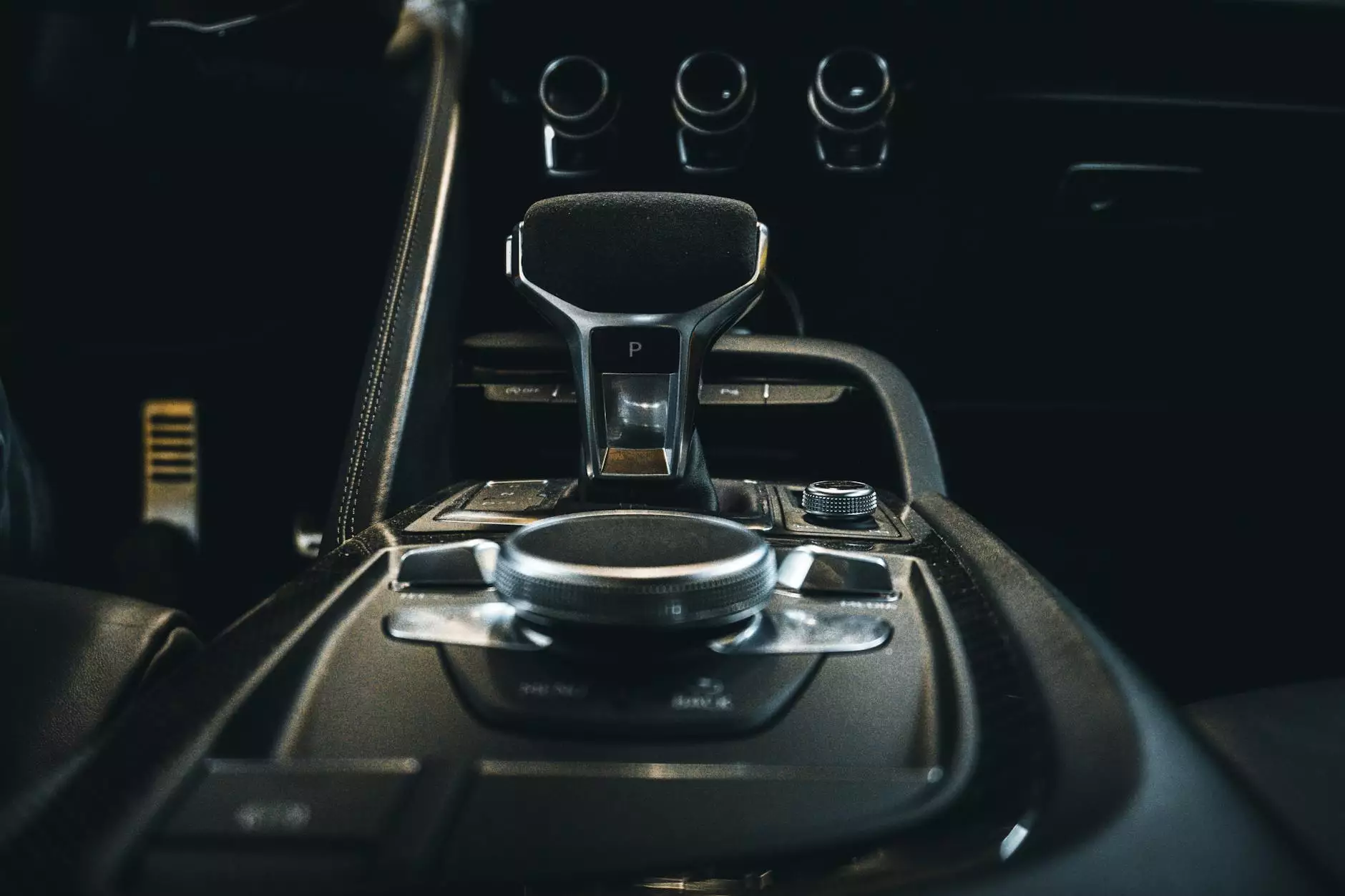Understanding TCU Transmission: The Heart of Modern Automotive Technology

The automotive industry has rapidly evolved over the past few decades, embracing innovative technologies that significantly enhance vehicle performance. Among these technologies, the Transmission Control Unit (TCU) stands out as a crucial component in modern vehicles, especially those equipped with automatic transmissions. This article delves deep into the concept of TCU transmission, detailing its functionality, benefits, and impact on the automotive landscape.
What is a TCU Transmission?
The Transmission Control Unit (TCU) is an integral part of a vehicle's transmission system. It is a specialized computer that manages the automatic transmission functions by collecting data from various sensors within the vehicle. The TCU processes this data to optimize shifting patterns, ensuring that the transmission operates smoothly and efficiently. In essence, the TCU acts as the brain of the transmission system, making real-time decisions to enhance vehicle performance.
How Does a TCU Work?
The operation of a TCU transmission can be understood through the following components:
- Data Input Sensors: Various sensors gather information such as vehicle speed, engine load, throttle position, and more.
- Processing Unit: The TCU processes the input data using sophisticated algorithms to determine the optimal transmission behavior.
- Control Outputs: The TCU sends signals to the transmission system to control gear shifting, allowing for seamless transitions between gears.
By continuously monitoring and adjusting the transmission's operations, the TCU ensures that the vehicle delivers optimal performance under varying driving conditions. This adaptability is a significant advantage over traditional, mechanically-controlled transmissions.
Benefits of TCU Transmission
Adopting a TCU transmission brings numerous benefits to both manufacturers and consumers. Here are some of the most notable advantages:
1. Improved Fuel Efficiency
One of the most significant benefits of a TCU transmission is its ability to optimize fuel consumption. By controlling when to shift gears based on real-time data, the TCU can enhance fuel efficiency, allowing drivers to get more mileage from their vehicles. This is particularly important as consumers today are more environmentally conscious and seek ways to reduce their carbon footprint.
2. Enhanced Driving Experience
The smooth and seamless gear shifts enabled by the TCU contribute to a more enjoyable driving experience. Drivers benefit from improved acceleration and responsiveness, making the vehicle more fun to drive. Additionally, the refined shifting patterns reduce drivetrain shock, enhancing overall vehicle comfort.
3. Adaptability to Driving Conditions
A TCU can adjust its shifting strategy based on various driving conditions. For example, it can optimize for performance during aggressive driving or conserve fuel during leisurely drives. This versatility ensures that the vehicle performs well in different environments, whether navigating city traffic or cruising on the highway.
4. Advanced Diagnostics
The modern TCU comes equipped with advanced diagnostic capabilities. It can monitor the transmission’s health and performance, alerting drivers to potential issues before they become significant problems. This proactive approach to maintenance can save vehicle owners time and money by preventing costly repairs down the line.
TCU Transmission and Vehicle Control Systems
The evolution of automotive technology has led to the integration of various control systems working in harmony with the TCU transmission. The interaction among these systems enhances vehicle safety and performance:
1. Engine Control Unit (ECU)
The TCU often works in conjunction with the Engine Control Unit (ECU), which manages engine performance. By communicating with the ECU, the TCU can modify gear shifts based on engine power output, ensuring optimal performance throughout different driving conditions.
2. Anti-lock Braking System (ABS)
The TCU can also interface with the ABS to manage vehicle stability. By understanding when the brakes are applied and adjusting the transmission accordingly, the TCU can support better performance during sudden stops or tight cornering.
3. Traction Control Systems (TCS)
In vehicles equipped with Traction Control Systems, the TCU plays a crucial role in managing power distribution to the wheels. In slippery conditions, the TCU can hold gears longer or shift in a way that reduces wheel spin, contributing to improved traction and vehicle control.
Potential Challenges of TCU Transmission
While the advantages of TCU transmission are numerous, it is essential to recognize potential challenges associated with this technology:
1. Complexity
The sophisticated nature of TCU transmissions means that they require a deeper understanding when it comes to repairs and maintenance. Vehicle technicians need specialized training to diagnose and repair issues effectively.
2. Cost
Vehicles equipped with advanced TCU technologies may come with a higher purchase price. Additionally, if repair is needed, the cost can be significant compared to traditional transmissions, due to the complexity and specialized knowledge required.
3. Dependence on Electrical Systems
Since the TCU relies heavily on electrical systems, any failure in the vehicle’s electrical system can lead to transmission issues. Regular maintenance of the vehicle's electrical components is crucial to ensuring the TCU operates smoothly.
Future of TCU Transmissions in Automotive Technology
The automotive industry continues to push the boundaries of technology, and TCU systems are no exception. The future of TCU transmission is bright, with continuous developments aimed at improving performance and efficiency:
1. Integration with Electric and Hybrid Vehicles
As electric and hybrid vehicles become more popular, the role of TCU transmission will evolve. Manufacturers are focusing on creating transmission systems that work seamlessly with electric motors, ensuring optimal performance and efficiency.
2. Advancement in Artificial Intelligence (AI)
With advancements in AI and machine learning, future TCU systems may be capable of learning a driver's habits and preferences. This personalization could lead to even more refined gear-shifting patterns and enhanced driving experiences tailored to each individual.
3. Increasing Vehicle Connectivity
The rise of connected vehicles is another area where TCU transmission technology will thrive. With the ability to communicate with other vehicles on the road, TCU systems can anticipate traffic patterns, adjust gear shifting in real-time, and promote safer driving practices.
Conclusion
In conclusion, the TCU transmission represents a remarkable leap in automotive technology, providing drivers with enhanced performance, efficiency, and adaptability. As we move forward in an era of advanced vehicle technology, understanding the significance of TCU systems will become increasingly important. Whether you are an automotive enthusiast, a driver, or involved in the auto parts industry, appreciating the role of TCU transmissions will help you stay ahead in this ever-evolving landscape.
If you're seeking high-quality auto parts and supplies, look no further than shenghaiautoparts.com. Our commitment to excellence ensures that you will find the best automotive solutions available, including those related to TCU transmission technology.









